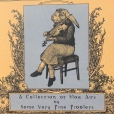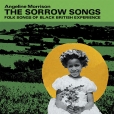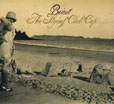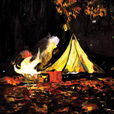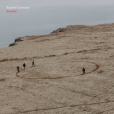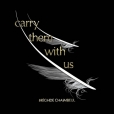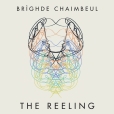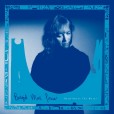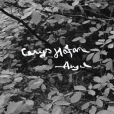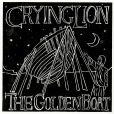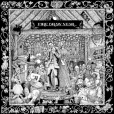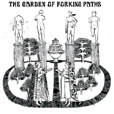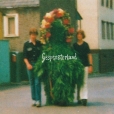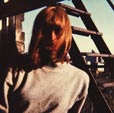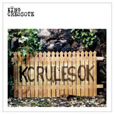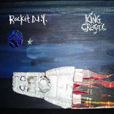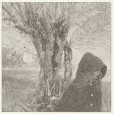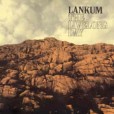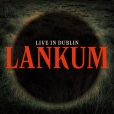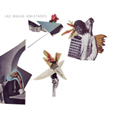Your basket is empty

“The traditional songs of the UK are rich with storytelling, and you can find songs with examples of almost any kind of situation or person you can think of. While people of the African diaspora have been present in these islands since Roman times, their histories are little known – and these histories don’t tend to appear in the folk songs of these islands.”
Angeline about her song Unknown African Boy (d.1830): “I learned that slave ships regularly passed by the Isles of Scilly and several were wrecked. A local newspaper article of the time listed some of the items washed up on shore: palm oil, elephant tusks, boxes of silver dollars and gold dust, and the body of an unknown ‘West African boy – estimated age around eight’. The boy is buried in St Martin’s churchyard, Isles of Scilly. I wrote this song from the perspective of his mother.”
And about Cruel Mother Country: “In 1775 and 1776, enslaved Africans in the US were encouraged to put their lives at risk by escaping to join the British army. They were assured the Queen of England was Black – the Black Queen in question was Queen Charlotte of Mecklenberg-Strelitz, wife of King George III. We may never know the truth about Queen Charlotte’s ancestry, but we do know that gossip about it was rife at the time. The promised homeland these enslaved Africans risked their lives in exchange for never materialised. Most became homeless on the streets of London.”
Alex Neilson and Martin Carthy are amongst the supporting musicians.
Six originals alternately for nylon-string classical guitar and grand piano, with JB’s own subtle vibraphone and B3 organ overdubs. Genevieve Beaulieu sings on And I Have Come Upon This Place By Lost Ways.
Live in Scotland with Alex Neilson and Harem Scarem.
This is terrific; warmly recommended.
‘Brìghde Chaimbeul is a leading purveyor of celtic experimentalism and a master of the Scottish smallpipes; a bellows-blown, mellower cousin to the famous Highland bagpipes. A native Gaelic speaker, Brìghde roots her music in her language and culture. She rose to prominence as a prodigy of traditional music, but has since begun a journey to take the smallpipes into unchartered territory. She has devised a unique way or arranging for pipe music that emphasises the rich textural drones of the instrument; the constancy of sound that creates a trance-like atmosphere, played with enticing virtuosic liquidity. She draws inspiration from the world of interconnected piping traditions, but her most recent album brings in influence from ambient, avant garde and electronic music.’
Refreshing, rootedly odd, mostly unaccompanied four-part-harmony singing recorded in Govan Old Parish Church, Glasgow, by members of Trembling Bells and Muldoon’s Picnic. Elements of Sacred Harp, Gregorian chant, medieval madrigal and English folk, with poetic influences including Maya Deren, Saint John The Divine and Dennis Potter — a unique blend of the visionary and the earthly, the intimate and glorious.
Silk-screened sleeve.
‘As always, there is a true touch of otherness to Delphine’s voice and approach. While most of the melodies are homespun, there is an abiding oddness to the electronic squiggles, keyboard swathes and found sounds that sit behind everything. At times it sounds as though she’s reciting nursery rhymes from another planet… and there’s an lazy jazziness to Mocke’s guitar playing that sets everything off quite beautifully’ (The Wire).
Curator James Blackshaw brings together Espers’ Swedish cellist Helena Espvall, koto virtuoso Chieko Mori, Dutch lute player Josef Van Wissem — along with a track from Blackshaw himself.
‘Ghost musick… operating in the margins and intersections of folklore, experimental electronics, dreams and nightmares… Think of it as a rampant yearning, a manic laughter, but mostly as a feeling of some somnambulistic thirst for adventure and journeys into the unknown, a feeling that is grounded deep inside the heart of the continent.’
‘Shines a light on a little-heard, spooked German underground, working below the radar on mostly small-run releases. Lower Franconia’s Baldruin lays the mystery on thick, his fevered tracks here using flutes, electric organs and shaken children’s toys to create an opaque ambience. Close neighbours Brannten Schnüre voyage into similarly uncharted territory, providing laceworks of fragile folk melodies and sloshes of breathy drone offset by detached vocals. Like Brothers Grimm armed with analogue synths, Freundliche Kreisel supply the title track’s sinister fairy tale, while the oblique textures of Kirschstein’s mystically-themed efforts betray roots in Amon Düül’s hallucinogenic psychedelia and Novy Svet’s neo surrealism. A very dark delight’ (Mojo).
‘**** CD Of The Week… everything her followers have long cherished about Keineg… An uncompromising and long overdue return’ (Sunday Times).
**** Daily Mirror; **** Financial Times.
Terrific new folk music from Dublin. Try the opener, the travellers’ song What Will We Do When We Have No Money? And the centre-piece, the furiously inward-turned immigrant song, Déanta in Éireann. The Granite Gaze… killer.
Hotly recommended.
Another tremendous album from Dublin. It kicks off with a devastating reclamation of The Wild Rover — waste, shame and regret restored — and closes with a compelling original, about a community of women living rough (in nests) on the plains of the Curragh, County Kildare, in the nineteenth century. The centrepiece is a dread version of the Appalachian song Katie Cruel, about a sex worker, by way of Karen Dalton. There are revivals of old-time fiddle music from Montana and Missouri; moments of heavy metal hornpipe.
“Drone is a big part of traditional music because the Uilleann pipes are indigenous to Ireland, so we’re ramping up that history and taking it as far as we can.”
Hotly recommended.
‘one of the most charming idiosyncrasies I have heard all year… where truth is seized accidentally and musical shambles are sweet, virtuous and silly… like watching early Bunuel without subtitles’ (Plan B).
‘The bad influences’, from Bogota, with their third album for us: twenty-eight gorgeous variations of saudade, in a warmly acoustic, post-punk take on Tropicalismo — impromptu, snapshot and sublime.

